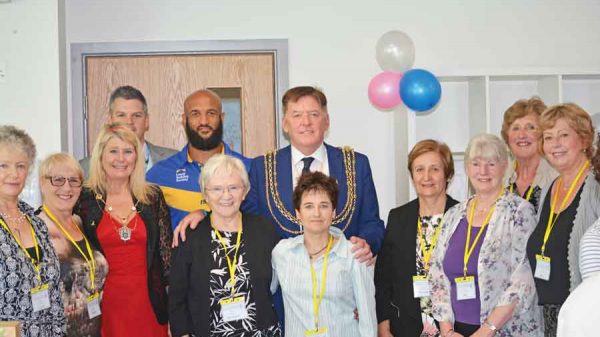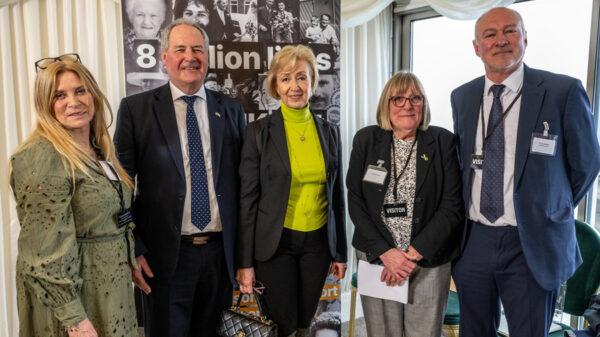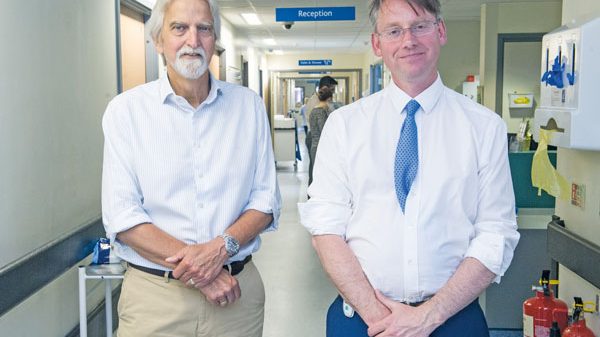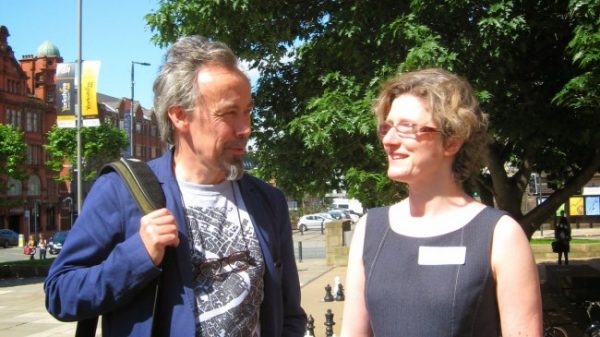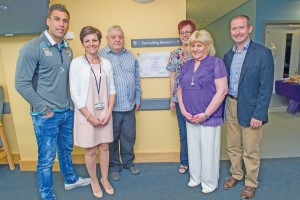A £1 million new Da Vinci robot dedicated to children’s surgery is now in use at Leeds Children’s Hospital following an incredibly generous donation received through the Leeds Children’s Hospital Appeal.
Leeds Teaching Hospitals pioneered robotic surgery in the UK, and is one of only a small number of centres in the country to have two surgical robots, with one earmarked solely for surgery on sick children. Leeds is the only centre nationally outside London to have a children’s surgical robot
A philanthropist who heard about the pioneering work being undertaken at Leeds Children’s Hospital agreed to fund the £1 million cost, although they have asked to remain anonymous.
Mr Edward Ziff, Chairman of the Leeds Teaching Hospitals Charitable Foundation, said; “Our Leeds Children’s Hospital Appeal complements the brilliant work that doctors, nurses and our clinical staff do here in Leeds to achieve the best possible outcomes for young patients. One priority for us is ensuring access to the latest technology, and when this opportunity came up we were thrilled and delighted when one of our benefactors agreed to buy the surgical robot for us.
“On behalf of the Appeal and the children of Yorkshire who will benefit from this fantastic gesture I want to say a huge public thank you to the donor. I can assure them they could not have chosen a better cause and the equipment thy have funded will make a big difference.”
Dr Linda Pollard CBE, Chair of Leeds Teaching Hospitals NHS Trust, added: “This is an incredibly generous donation which allows us to build on the internationally important work our surgeons have pioneered in Leeds. A new state-of-the-art surgical robot dedicated to young patients will further enhance care and treatment options and puts Leeds Children’s Hospital at the forefront of this technique globally.”
The donation means an existing robot which has been in use for a number of years at Leeds Children’s Hospital has been replaced with the latest type with better functionality, a wider range of potential uses and the scope to increase the number of children who can benefit.
Surgical robots are a tool which give an expertly trained surgeon the ability to control the device’s arms with immense precision during keyhole procedures when surgery is taking place within a confined space where pinpoint accuracy is needed.
The technique can potentially be utilised for most children’s conditions, but is particularly useful in undertaking keyhole surgery on the kidney, stomach, pelvic organs, liver and bile ducts.
Between 60 and 90 children from across Yorkshire are operated on annually using the robot, and there is a potential to expand this to more than 350.
A number of paediatric surgeons at Leeds Children’s Hospital – Mr Naved Alizai, Mr David Crabbe, Mr Azad Najmaldin, Miss Emma Sidebottom, Mr Ramnath Subramaniam, Mr Ian Sugarman and Mr Jonathan Sutcliffe use the new robot as part of their surgical practice and are seeing improved outcomes for young patients at as a result.
Mr Najmaldin, who introduced and popularised minimally invasive surgery and robotic surgery for children in the UK and Europe, explained: “Compared to a conventional keyhole operation, the robot offers young patients many potential advantages. The precision of the robot offers the prospect of easier surgery, less bleeding and tissue damage, leading to fewer complications, and there is a reduced infection risk.
“For the young patients and their families the benefits include less pain, a shorter hospital stay and a happier child who make a swifter recovery. There is also less prospect of internal and external scarring from the surgery, boosting the youngster’s self-image after they go home
“As well as enhancing the precision of surgeons, the robot gives them a more comfortable working environment, with better vision and control during the operation. It potentially widens the type of procedures that can be done by keyhole surgery, and the latest model we are now using is even more precise and gives better control to the surgeon.”
Robot surgery procedures are potentially less costly for the NHS – patients stay in hospital for a shorter period of time and have fewer complications. Fewer staff are needed in theatre, allowing more efficient use of resources.
Leeds Teaching Hospitals has long been a pioneer of robotic surgery in children as well as adults. The new robot is easier to use and more compact, taking up less space in the theatre, and also offers improved possibilities for training and research.
